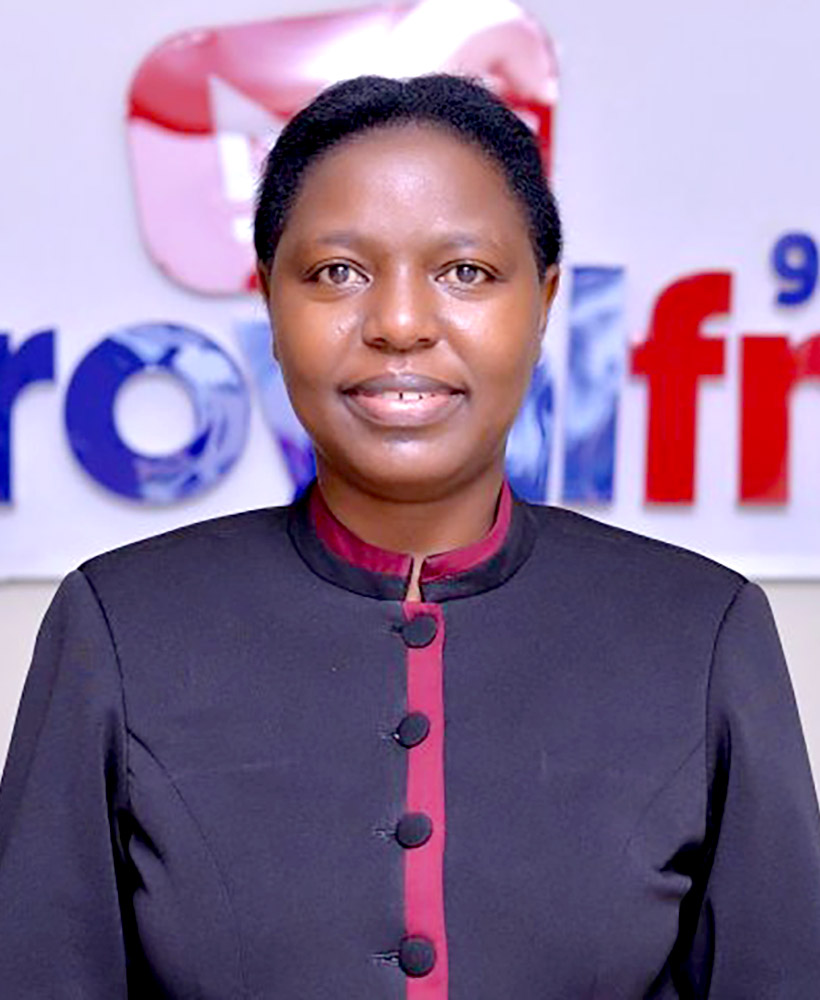Like many others from her generation, Yvonne had a hard time overcoming the psychological aftermath of the 1994 genocide in Rwanda. She chose to study mental health nursing to better understand and heal her wounds and most importantly be able to help people around her. However, she hadn’t realized the importance of cultural beliefs in her fight against ignorance surrounding mental health. For her patients’ families, bad spirits make their beloved ones act strangely, and only prayers and traditional practices could save them. Education, prevention, and awareness are key to help Yvonne reach the greatest possible number of people and support them to become mentally healthy. mHub provides a space for professionals like Yvonne and the general public to speak and learn about mental health, get treatments, and be part of a community of positive changemakers.
Introduction
- Hero: Yvonne Uwamahoro
- Challenge: Healing herself and helping to heal others
- Surprise: People believe that mental health problems are bad spirits
- Change: The population is getting more aware of mental health disorders
- Enemy: Ignorance
- Friend: mHub
Yvonne Uwamahoro, MPH
Head of Mental Health Services, mHub Rwanda
Full story
After high school, aged 18, Yvonne decided to study mental health nursing to better understand herself, what was going on in her mind and her own emotions – which were dominated by the feeling of being lost. It was a common feeling among her generation; anyone could feel the underlying darker cloud spread all over the country in people’s minds. As an answer to this dormant distress and no one to turn to, Yvonne felt urged to learn more about human psychology to be able to help herself and provide attention to anyone in need in the society.
Back then, many people were suffering from mental disorders, but only few professionals could understand them and support the population’s needs. Yvonne was herself dealing with psychological issues due to the traumatic events occurred in the 1994 genocide. Seeing the aftermath of these atrocities at a young age made her question and reflect on human’s misbehaviors and purpose. Providentially, she got a scholarship from the Rwandan government and went on studying at Kigali Health Institute.
Her studies healed her. In addition, as she learned more about mental health and psychology, she felt that what she went through made her stronger to understand and help anyone with mental health issues.
Once she graduated in 2004, and at a time where mental health professionals were desperately needed in the country, she quickly joined Kabgayi District Hospital as the mental health referral person. She was shocked and saddened to see that the great majority of people in mental distress were extremely poor, with limited access to healthcare services. Stigma wasn’t affecting patients only; mental health professionals were also stigmatized in the general public opinion as well as within the hospital system. When she started working, health professionals used to call out “Mental Health” when they urgently needed Yvonne to take care of a patient. Other medical staff didn’t fully understand what the role of a psychiatric nurse was, and whether or not she had magical powers to deal with unstable patients. They didn’t pay attention to Yvonne’s safety when leaving her with patients in the middle of a delusional or aggressive episode.
In her private and social life, it could and still can be challenging to maintain normal relationships. Her friends sometimes think that she is observing and analyzing them even in casual conversations. Some would describe their symptoms to her and ask for a diagnosis or a treatment. As she says, “we all have issues to be fixed”.
During her career at Caraes Ndera Neuropsychiatric Hospital (2006-2020), she felt supported in expanding her knowledge. Each year, the hospital would provide an internal plan for staff training. A British trainer provided a three-year on-field course on drug abuse, which encompassed theory and practice elements. Due to her higher position, Yvonne attended numerous conferences and seminars, and talked to various people in the field at the local or international level. Her mindset was “I want more. If I’m given a chance, I’ll take it in order to upgrade my skills”.
In her eyes, the enemies to the Rwandan mental health and wellbeing are ignorance and cultural beliefs. On one hand, many Rwandans turn to the church when they suspect one of their loved ones to be suffering from mental disorders, such as depression, anxiety, or trauma. On the other hand, for the large majority, bad spirits are a reality, and ancestors may come back and haunt someone, explaining the unusual behaviors of a family member. This pushes them to have recourse to witchcraft. The frequent consumption of alcohol for diverse events is also a big issue, as it is proven that alcohol abuse often leads to psychological disorders.
Yvonne’s dream is to see everyone in Rwanda to possess basic knowledge about mental health. She wishes people could understand that mental illnesses are “normal” health challenges like malaria or diabetes. A depressive or schizophrenic patient is not a bad person or haunted by spirits, but someone who requires professional help. She hopes that discrimination and negative judgements surrounding mental health patients will drastically reduce in the coming years. In order to do so, she believes that prevention and raising awareness will help to change the mindset of the grown-up population. Her greatest hope is towards the children and younger generations, who can learn and become more educated on this topic at an early age to turn into more informed and proactive healthy adults.



